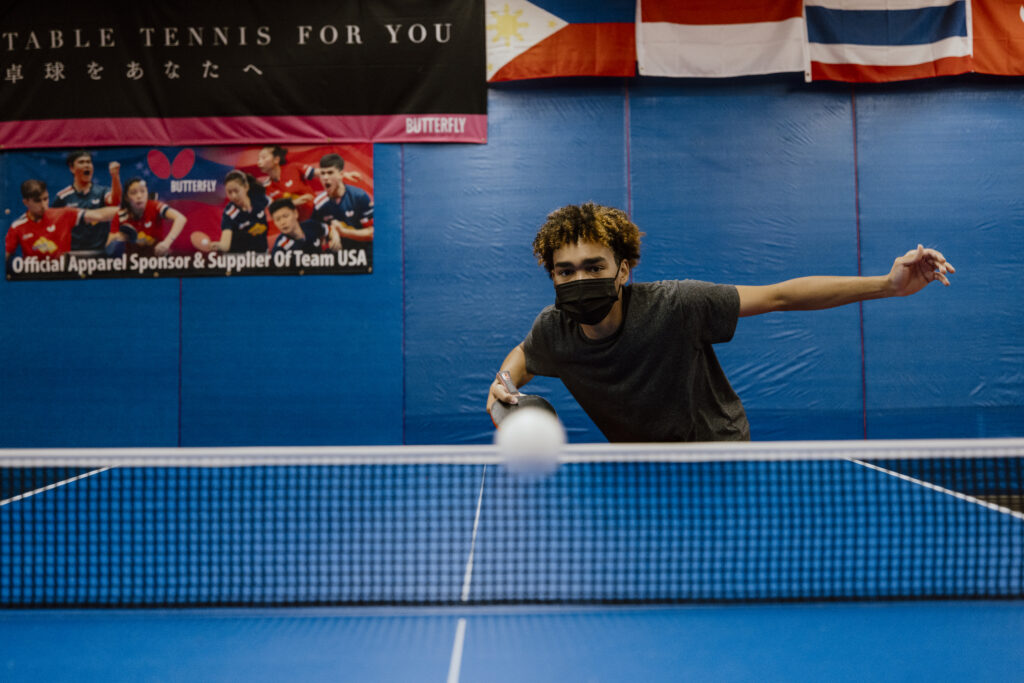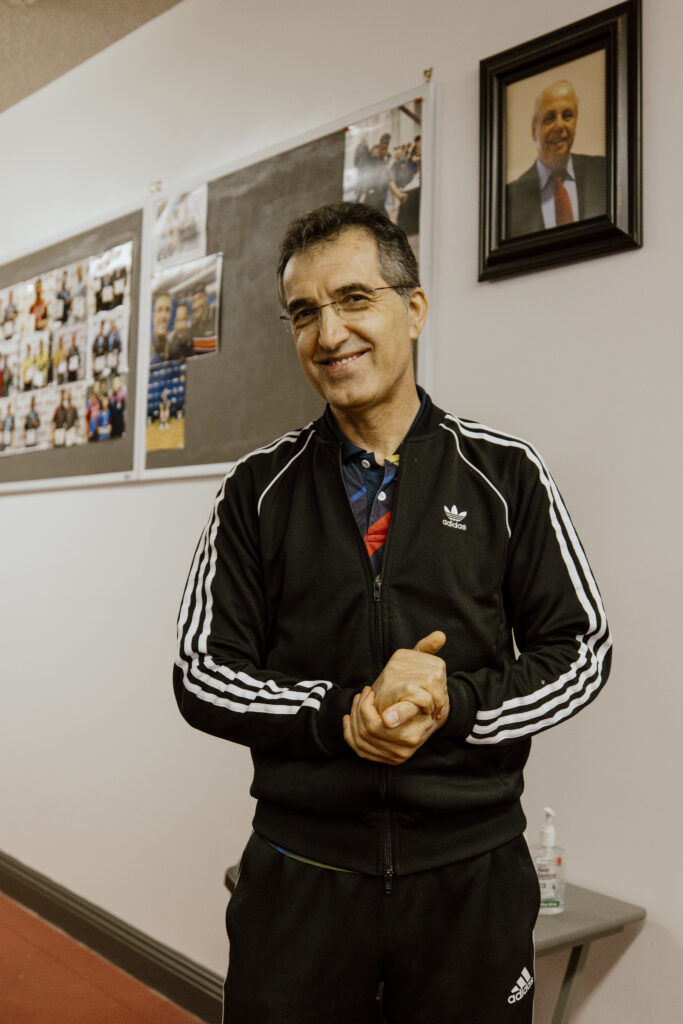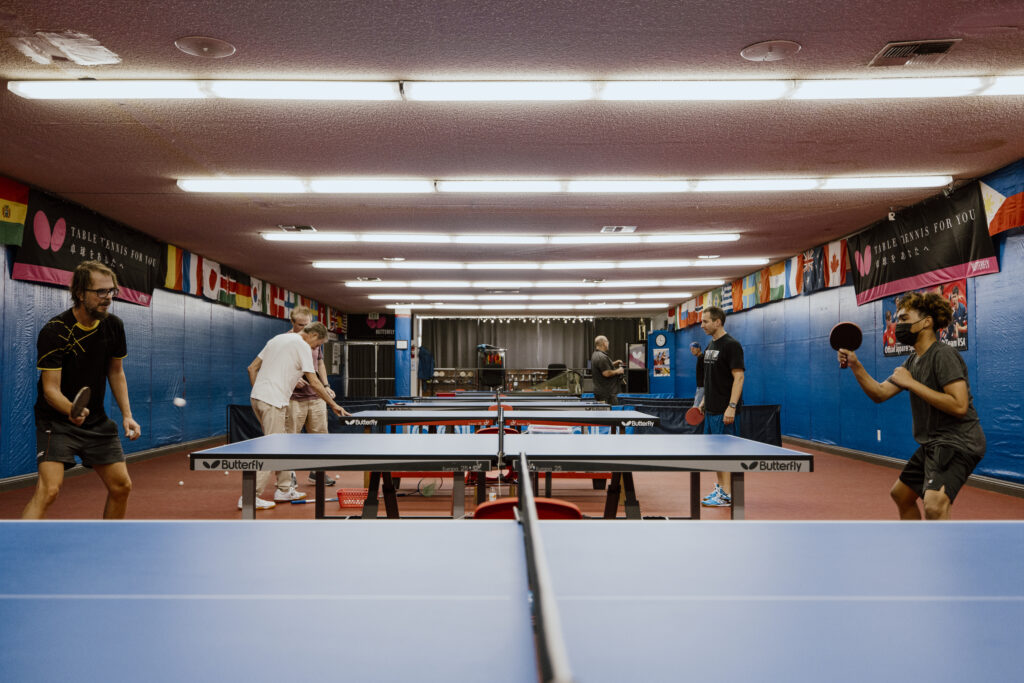
Wisps of white soared through the air against the indigo setting as ping pong balls crashed against the charcoal and vermillion-colored paddles. Beads of sweat covered the foreheads of players as they leapt back and forth to cover the span of the tennis table, making sure every ball got over the net.
Most people view pingpong—called table tennis by competitive players—as a leisure activity played at barbeques or college dorms, but athletes and coaches at local table tennis club Allen & Sons take the sport much more seriously.
Club owner Fovad Kaseb has dedicated his life to understanding and perfecting the nuances of table tennis.
“I began playing table tennis at a young age at a club in my town similar to the one I own now, which provided a healthy place for young players to learn, practice and compete in table tennis,” Kaseb said. “I fell in love with the sport and still love it immensely to this day. I am very grateful that I can provide a similar opportunity to young players in Los Angeles and help them along the way.”
Kaseb’s passion for ping pong started in his hometown of Sanandaj, Iran. He won several championships in singles and doubles competitions in Iran and West Asia. He competed in several world championships.
Kaseb spent a decade coaching the Iranian table tennis team as they placed in several international championships in Asia and the Athens Olympics.
He earned a master’s degree in physical education and received two high-performance coaching certificates from the International Table Tennis Federation and holds a national coaching certificate in the United States.
After moving to Los Angeles, Kaseb started coaching table tennis at Allen & Sons located in Canoga Park.
In 2019, Kaseb bought the business after original owner Allen Verny died.
“Unfortunately, Allen became very ill in 2017 and was no longer able to manage the club, but he loved the sport and wanted to see the club continue to bring table tennis lovers together,” Kaseb said. “At the time, I was one of the coaches teaching at the club and I also did not wish to see the club close down, so I decided to buy the business from Allen.”

Since 2019, Kaseb has offered a community for people ages 4 to 85, ranging from beginner to expert to come to learn the complexities of pingpong.
Pingpong player Jordan Jones started playing as a freshman in college as a way to socialize with schoolmates.
Four years later, Jones was trying to tackle the skills and techniques for table tennis.
Jones appreciates the group lessons Allen & Sons offers.
“I’m not ashamed to say that I’ve lost to almost everybody here,” Jones said. “It’s not a big deal because you have to lose to figure out what you’re bad at and figure out what you need to work on. So, I’ll take mental notes from what gave me the most trouble in the game, and then I’ll go over to a coach and say, ‘Hey, can we work on this,’ and they’re like, ‘Yeah, of course, sir,’ and they’ll set me up perfectly to work on my weaknesses.”
Another athlete interested in the intricacies of table tennis, Alex Machacek, has been practicing at Allen & Sons for about three years and said the coaching has greatly improved his game.
“You can remember the information that finally goes from your brain into your body that you executed correctly,” he said. “And then, if you hit that shot the way you’re supposed to, that’s a beautiful feeling.”

Table tennis expert Graham Frankel, the author of two pingpong novels, explained the social roots of the activity.
“It started as a social game and developed into a sport in the early part of the 20th century,” Frankel said. “In the Victorian times, they played in long dresses and suits. It was a kind of an after-dinner activity, but it transformed quite rapidly in the early parts of the 20th century.”
Frankel said many people start practicing table tennis because it’s easy to approach as it has low risks of injury and people can bond with their opposition during practice.
“It’s more accessible to people with various disabilities and older people. We’ve had players play successfully even in their 90s,” Frankel said.
Though Kaseb’s business had struggled during the pandemic, athletes, including Ami Schiller, found their passion for ping pong again and used it as a means to get in shape.
Though Schiller practiced table tennis in high school, he was able to perfect his practice with the help of Kaseb at Allen & Sons.
“Yeah, he’s got a good smile, he’s very friendly” Schiller said. “He’s definitely a good coach, he gives good tips, and it’s a pleasure to come here.”
Schiller said that hanks to Kaseb and other coaches at Allen & Sons, Schiller improved his form and had more fun playing with his newly acquired techniques.
Kaseb is happy to see athletes slowly return to the ping pong tables as the pandemic dies down.
“I received a great deal of encouragement and assistance from people who opened up their warm hearts to me in this country,” Kaseb said. “It’s been wonderful to teach table tennis in different parts of the world and offer a club where people can practice and learn table tennis every single day. I hope to pass along my knowledge and love of the sport to the next generation of players in Los Angeles.”



